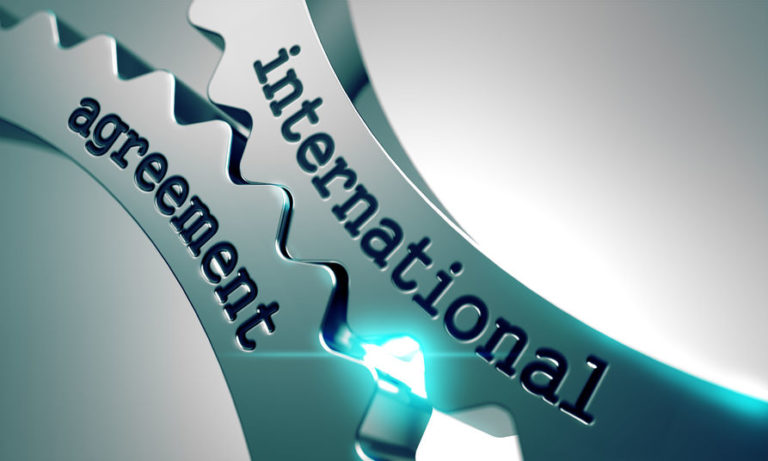RIO DE JANEIRO, BRAZIL – The Brazilian government is engaging in four parallel negotiation fronts to expand its network of cooperation agreements and investment facilitation (ACFIs) with other countries.
The intention is to strengthen legal security for foreign investors in Brazil, mainly with an eye on attracting new resources for the concessions and privatization program, one of the most robust in the world. At the same time, it seeks to increase protection for Brazilian multinationals with operations abroad.

On the first front, bilateral agreements have already been signed with 17 different partners, and there are exploratory talks with nations in Southeast Asia and Oceania.
On the second, the government is seeking to include an investment chapter along the lines of the ACFIs in free trade agreements that are at an advanced stage of negotiation, such as Mercosur-Canada and Mercosur-Singapore.
The third track was opened a few weeks ago. Discussions began within the Latin American Integration Association (Aladi) on an investment facilitation agreement that would cover all 13 member countries of the entity.
Finally, on the fourth front, the World Trade Organization (WTO) has a group of 107 countries dealing with the possibility of a plurilateral agreement on the subject.
The United States, the European Union, China, Canada, and Japan are part of the group. Brazil is trying to use the model of its ACFIs as the basis for the new agreement.
Itamaraty has been conducting the negotiations. However, there are some reservations among the economic team about the actual effectiveness of the ACFIs, which are a Brazilian innovation.
One wing of the Ministry of the Economy holds that ACFIs are do not provide sufficient legal protection for foreign investors, since they fall short of the model traditionally preferred by the more developed nations.
The first investment promotion and protection agreement (IPPA) was signed between Germany and Pakistan in 1959; there is a stock of approximately 3,000 of them in the world.
Attempts to stitch together a global investment treaty have failed in the past. The Organization for Economic Cooperation and Development (OECD) made an effort in the 1990s, and the WTO even included the subject in the Doha Round, but both projects were abandoned.
Also, in the 1990s, Brazil signed IPPAs with 15 countries – including Germany, the United Kingdom, France, Switzerland, and Portugal. However, the National Congress refused to vote on them, and they were eventually withdrawn.
One of the biggest focuses of resistance, both in Brazil and globally, was on two features of these IPPA agreements: the investor-state clause and the indirect expropriation clause.
The former allows companies to directly sue a state in forums abroad, such as the arbitration centers of the World Bank (ICSID) or the International Chamber of Commerce (ICC).
There was a perception that the solutions to disputes were biased towards the investor’s side and often contradicted prior Brazilian Supreme Court case law.
Amid the 2001 crisis, Argentina suffered more than 50 investor-state clause lawsuits. Belgium was sued because of measures taken to clean up its banking system in 2008.
In the case of indirect expropriation, investors can challenge public policies that have a similar economic effect, at least in theory, to the total or partial confiscation of their assets in the country that has signed the agreement.
The lawsuit filed by Philip Morris against Uruguay in 2010, in the context of the South American country’s bilateral agreement with Switzerland, became very well known. Montevideo had adopted anti-smoking policies, such as requiring each cigarette brand to have a single variant and 80% of the surface of the packs to be covered with images warning of the health hazards.
According to Ambassador Luiz Cesar Gasser, director of the Department of Services and Industry at Brazil’s Itamaraty, these clauses ended up generating an “asymmetric” relationship between countries receiving investments (usually emerging or poorer) and investors from prosperous economies.
The processing of the agreements, however, has taken several years. Only three – with Angola, Mexico, and the three Mercosul partners – are in force.
But it is not only the parliamentarians who are to blame. The treaty with Morocco, for example, was sent to Congress in January 2020. It does not even have a rapporteur appointed in the House Foreign Relations Committee.
The agreement with Ecuador took two years to be sent by the Palácio do Planalto to the Legislature. The deal with Colombia was approved in the House and the Senate. It has been awaiting enactment since April 2018.
In place of the clause allowing an investor to take a country to international arbitration, the ACFIs only provide state-state dispute resolution. Their advocates emphasize that they act more on conflict prevention.
To this end, they create the figure of an “ombudsman” in each signatory country – an authority in charge of receiving complaints or demands from investors, forwarding them through official agencies, and demanding solutions. In Brazil, this role is played by the Foreign Trade Chamber (Camex).
This type of agreement also has no provision for indirect expropriation, “safeguarding the regulatory space of the State,” says Ambassador Gasser.
Another innovation of the ACFIs is establishing a joint administration committee for each treaty, with continuous consultations between the signatory countries and social responsibility commitments by companies.
“The country finds itself in a unique situation, as it faces some resistance from part of the major economies in signing ACFIs, while the international community involved with the topic considers the Brazilian model worthy of consideration,” says Renato Baumann, former undersecretary of Camex and researcher at the Institute for Applied Economic Research (Ipea), in a recent study on the agreements.
With Information from Valor

